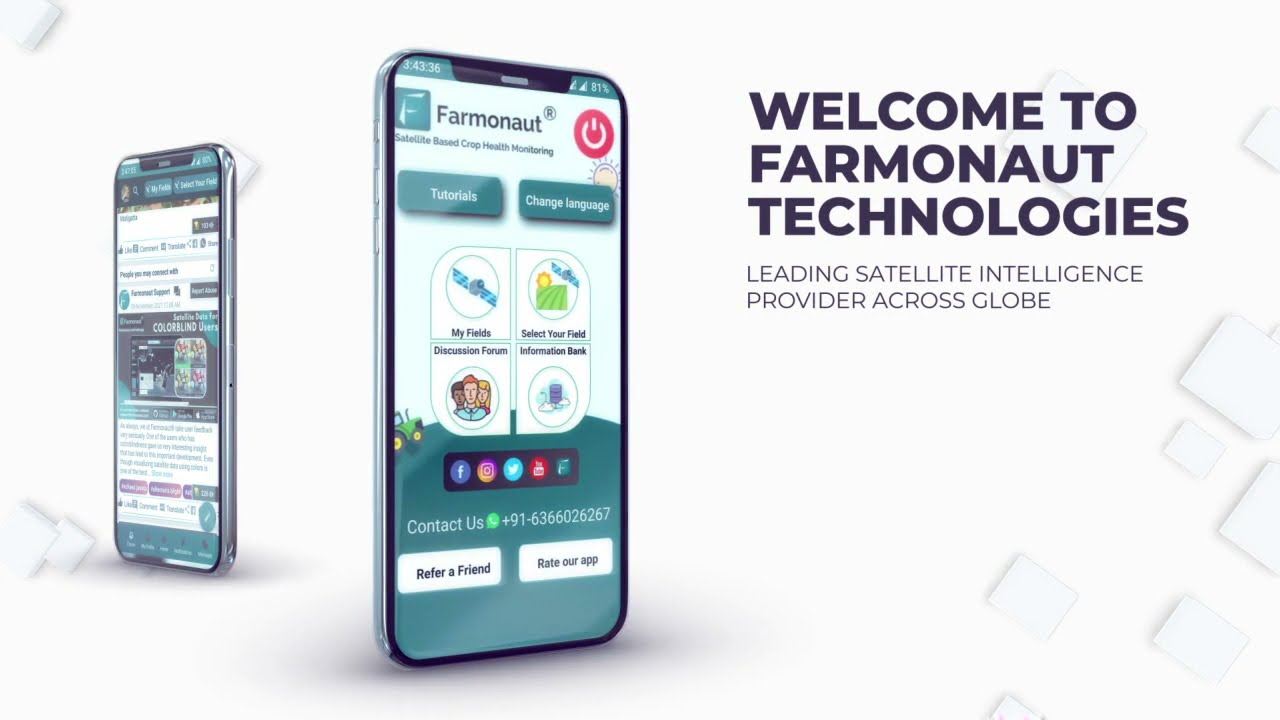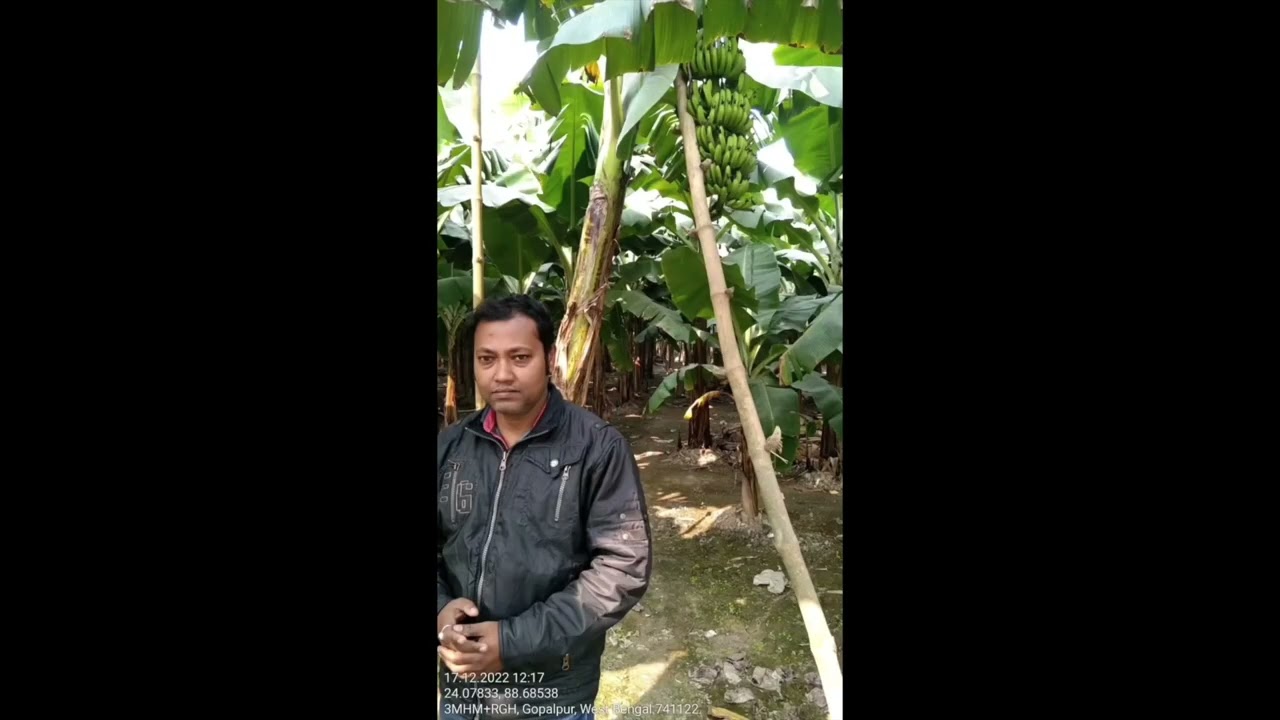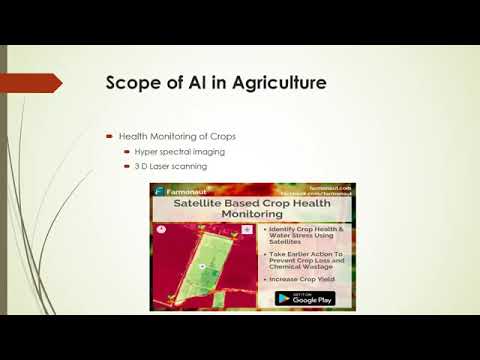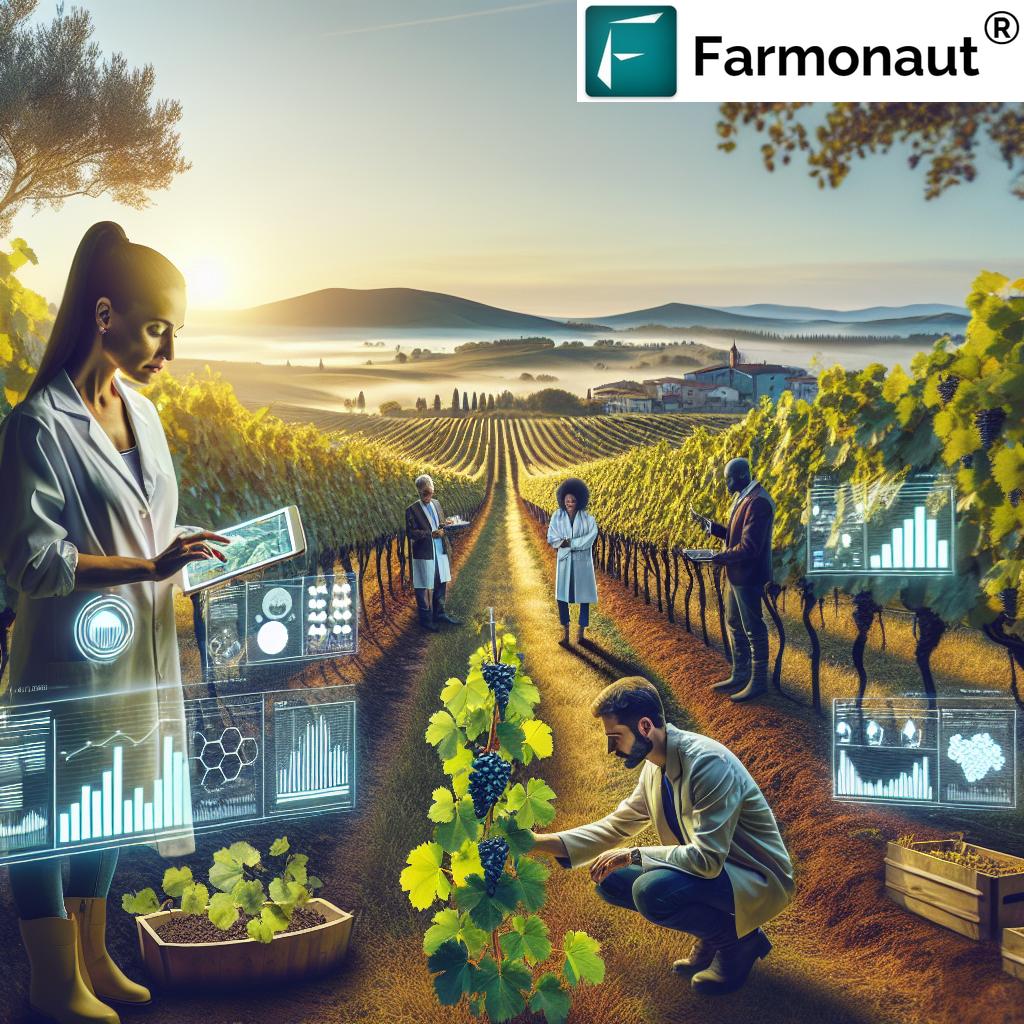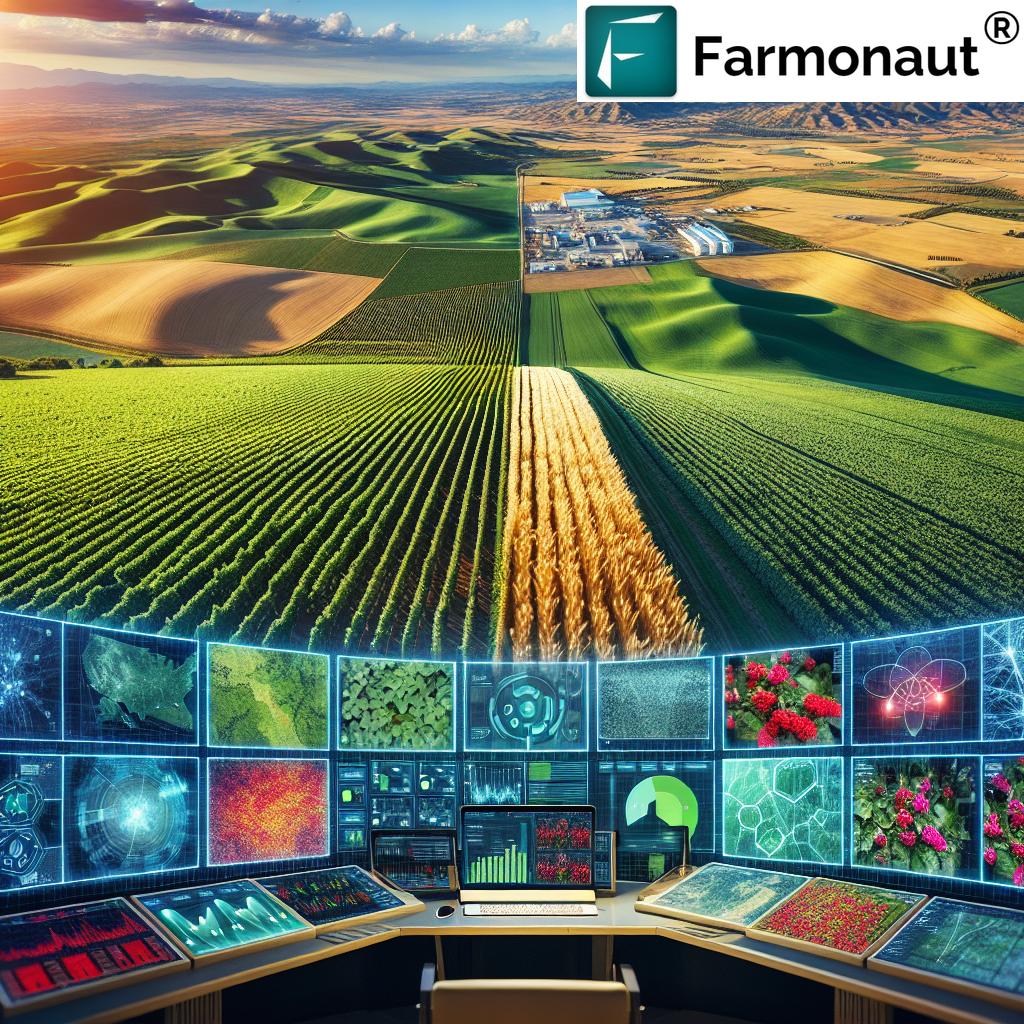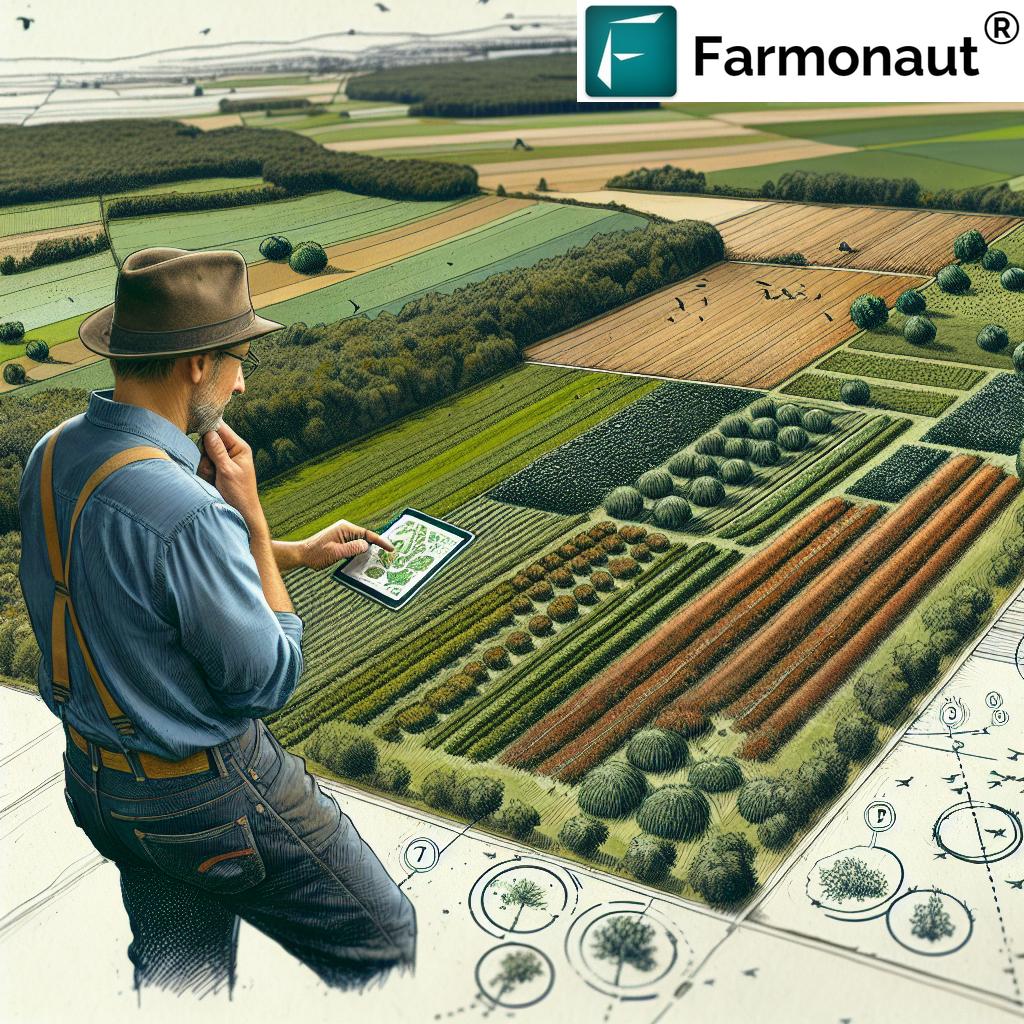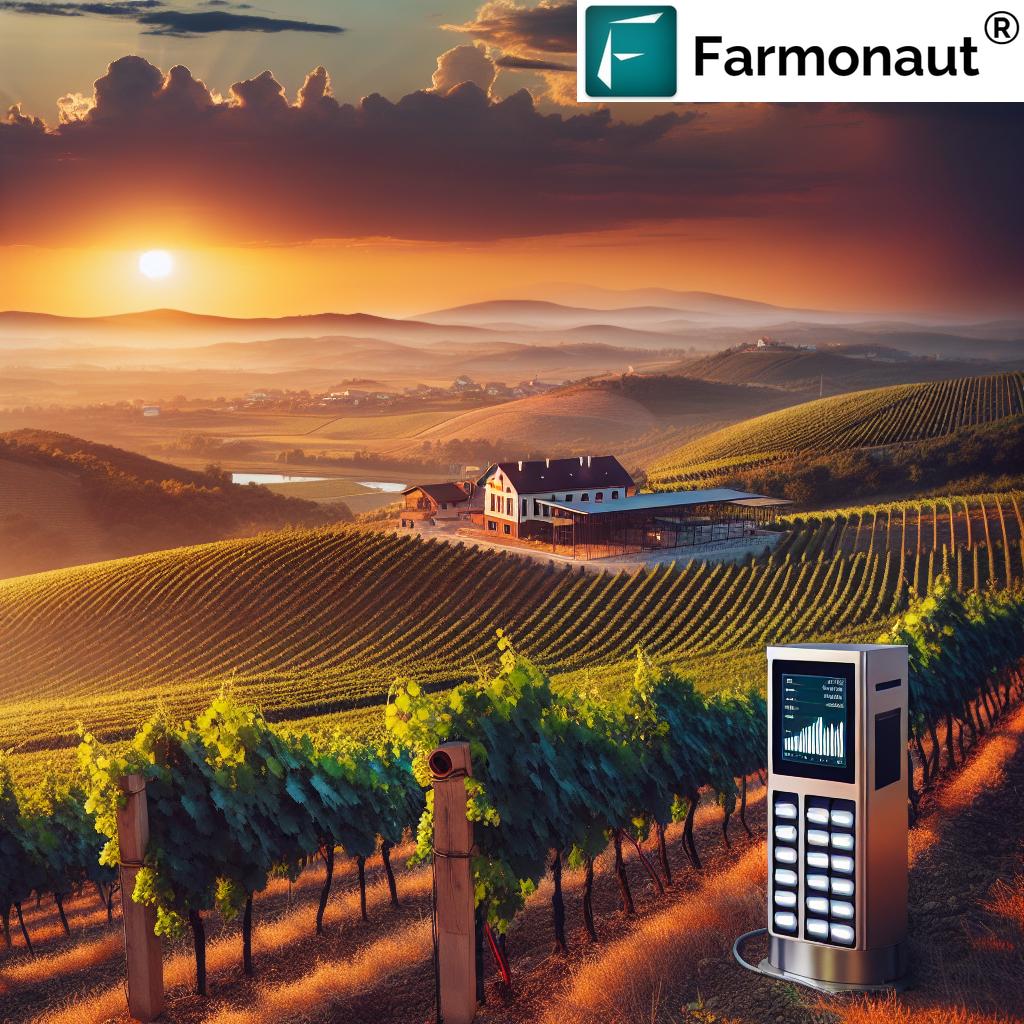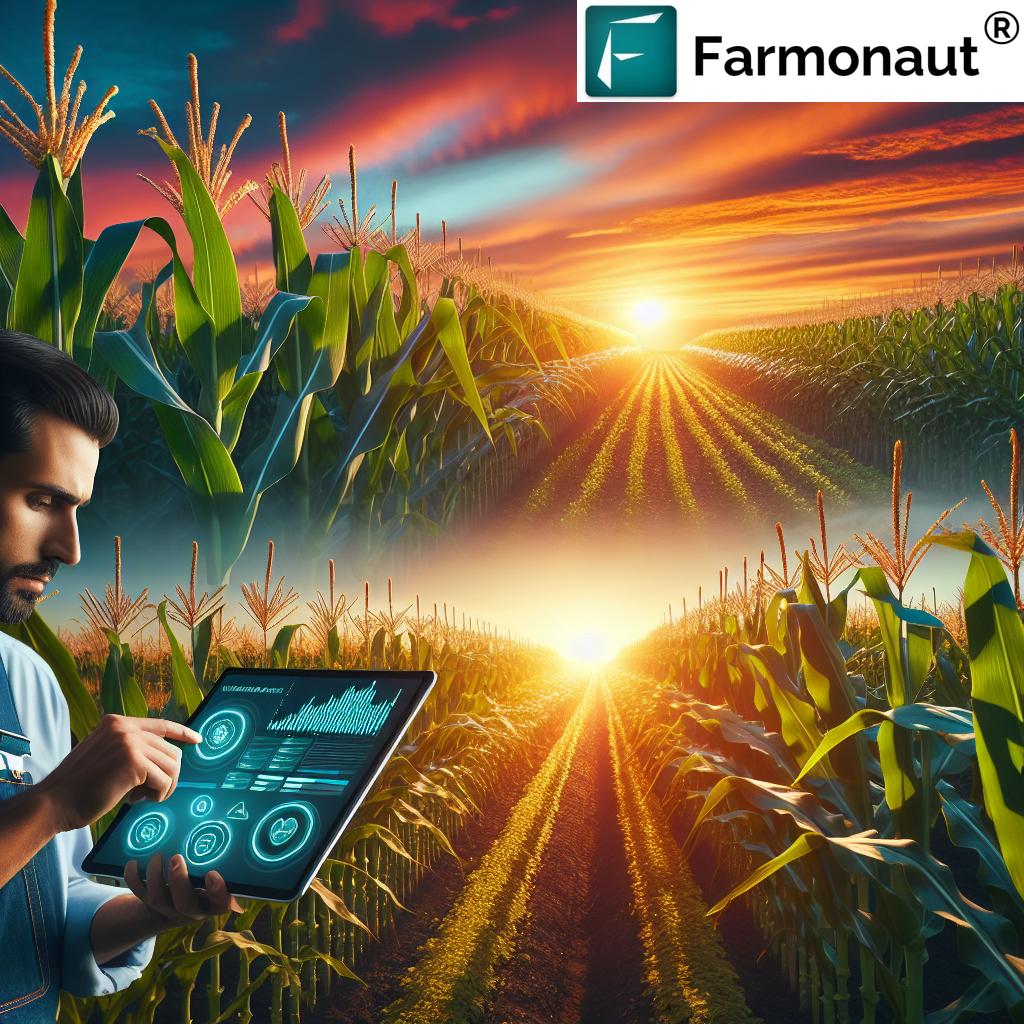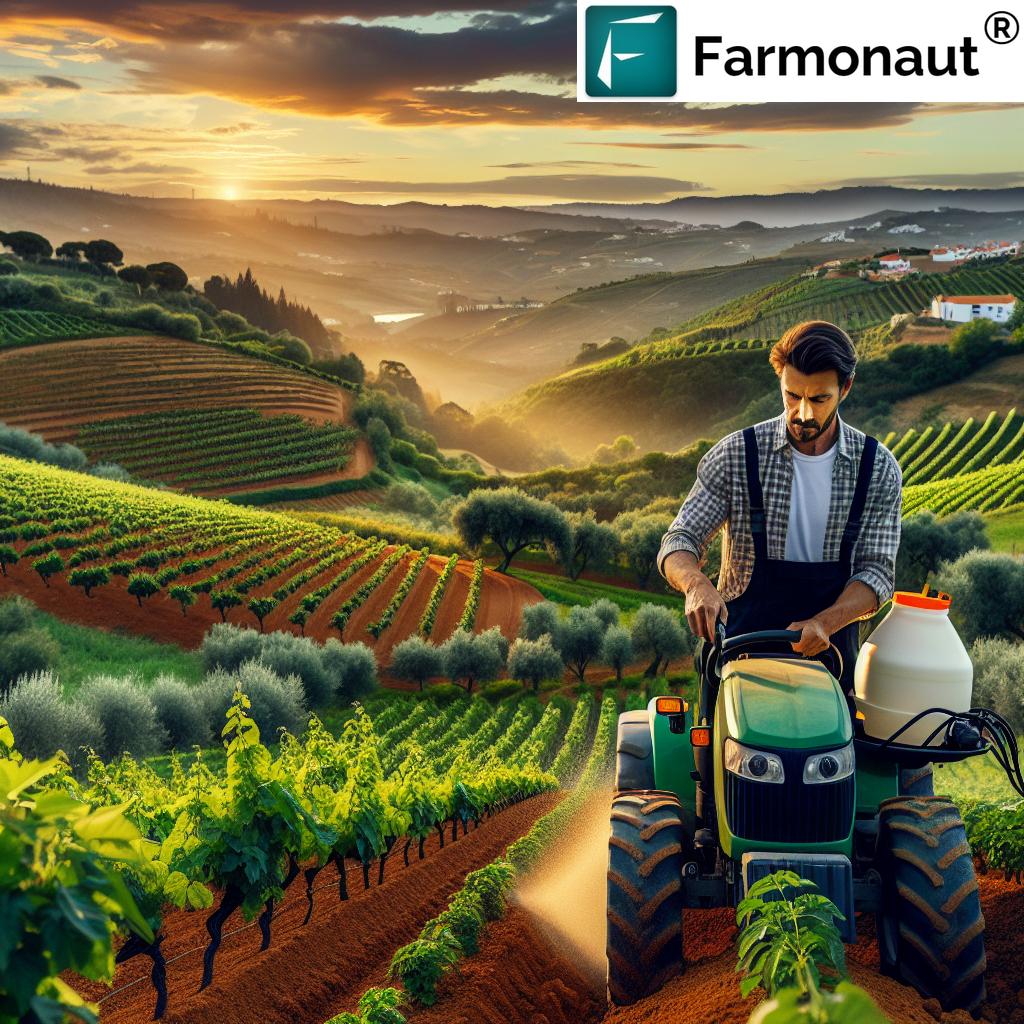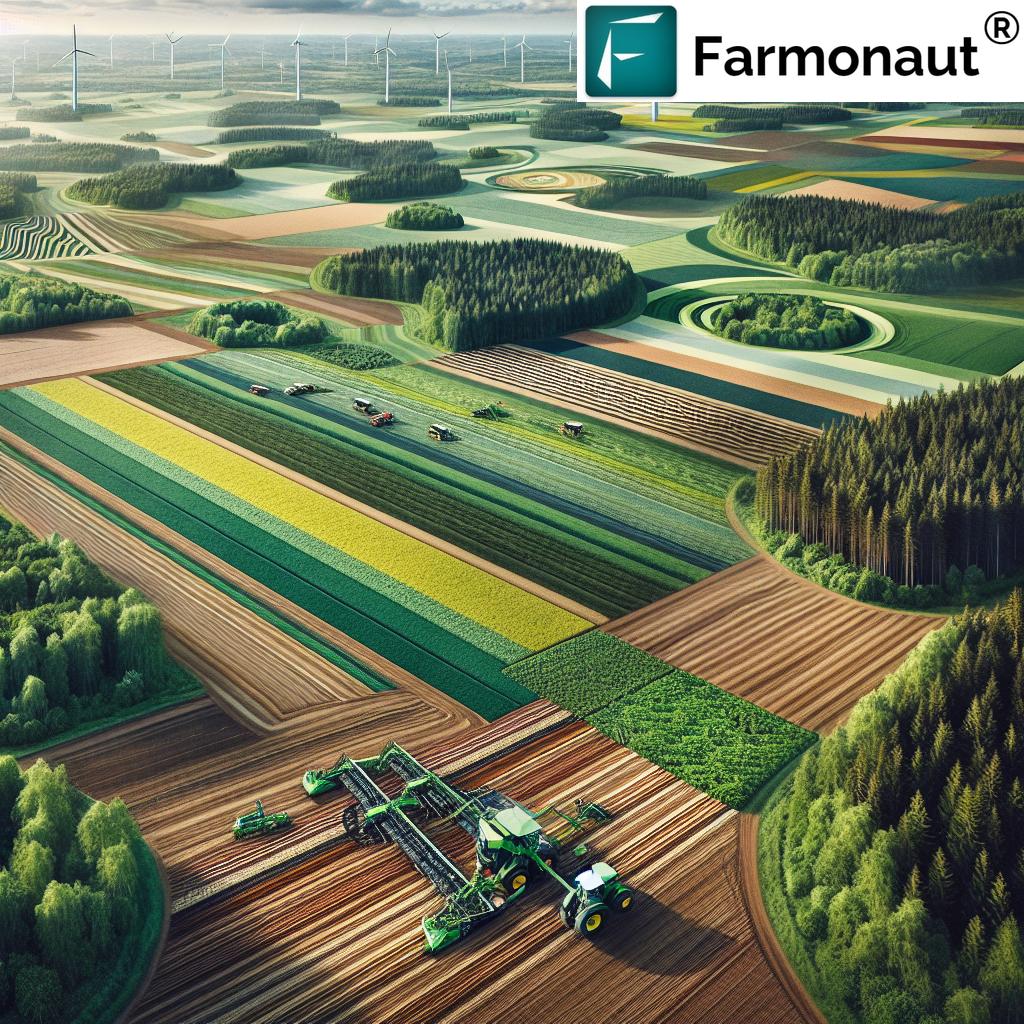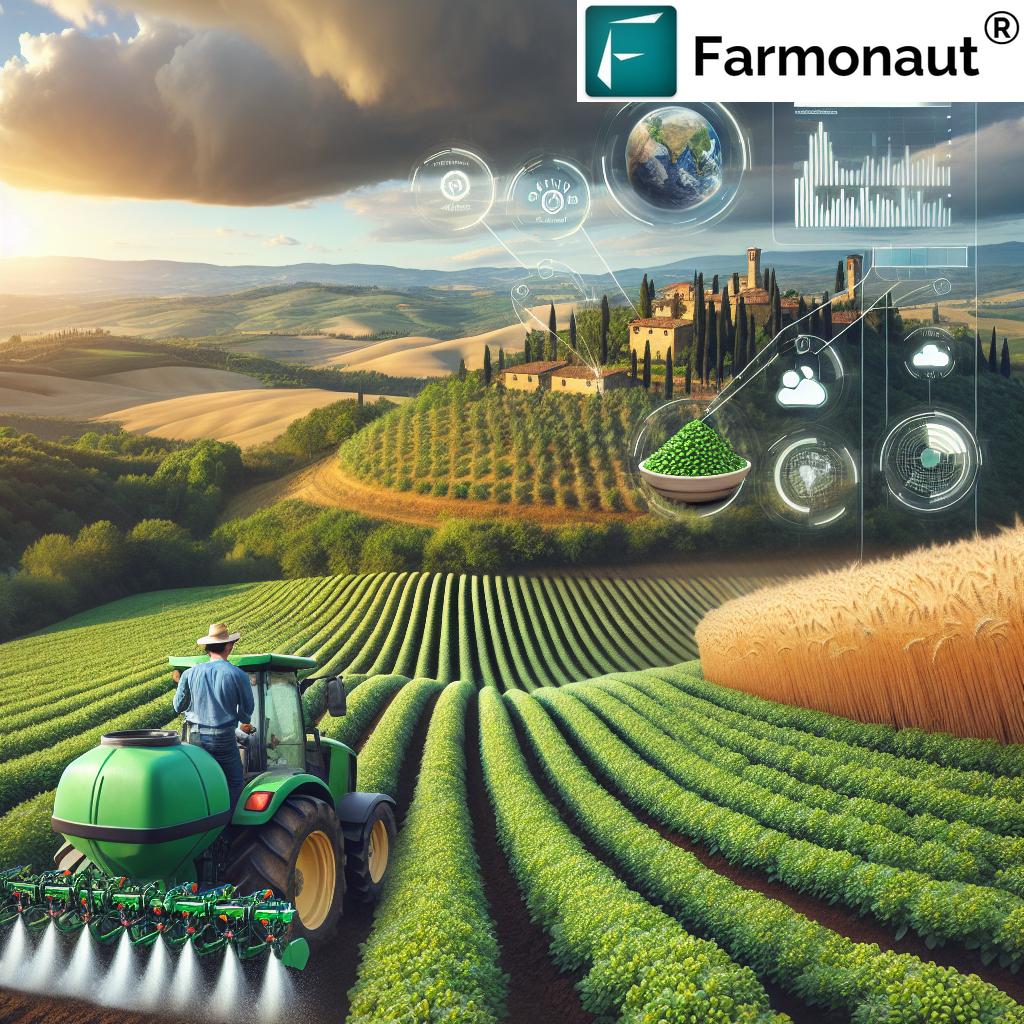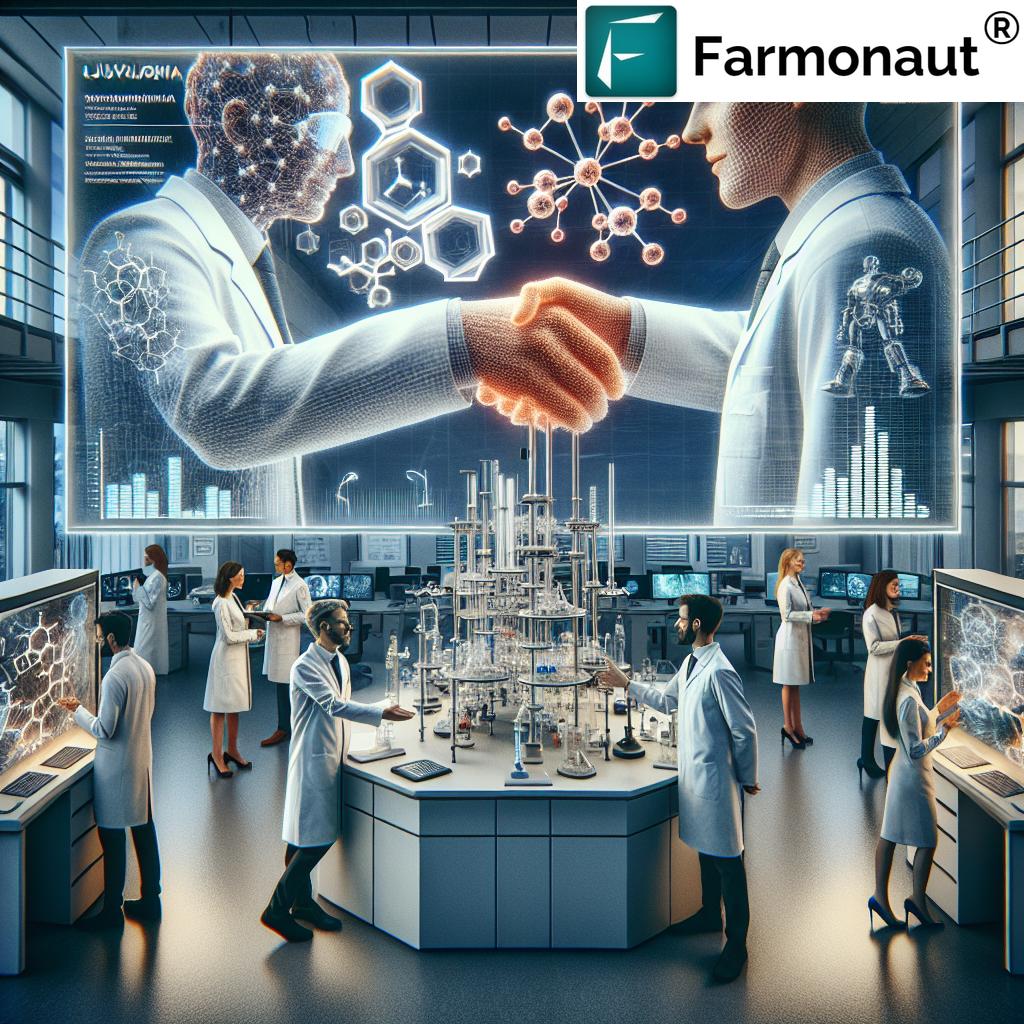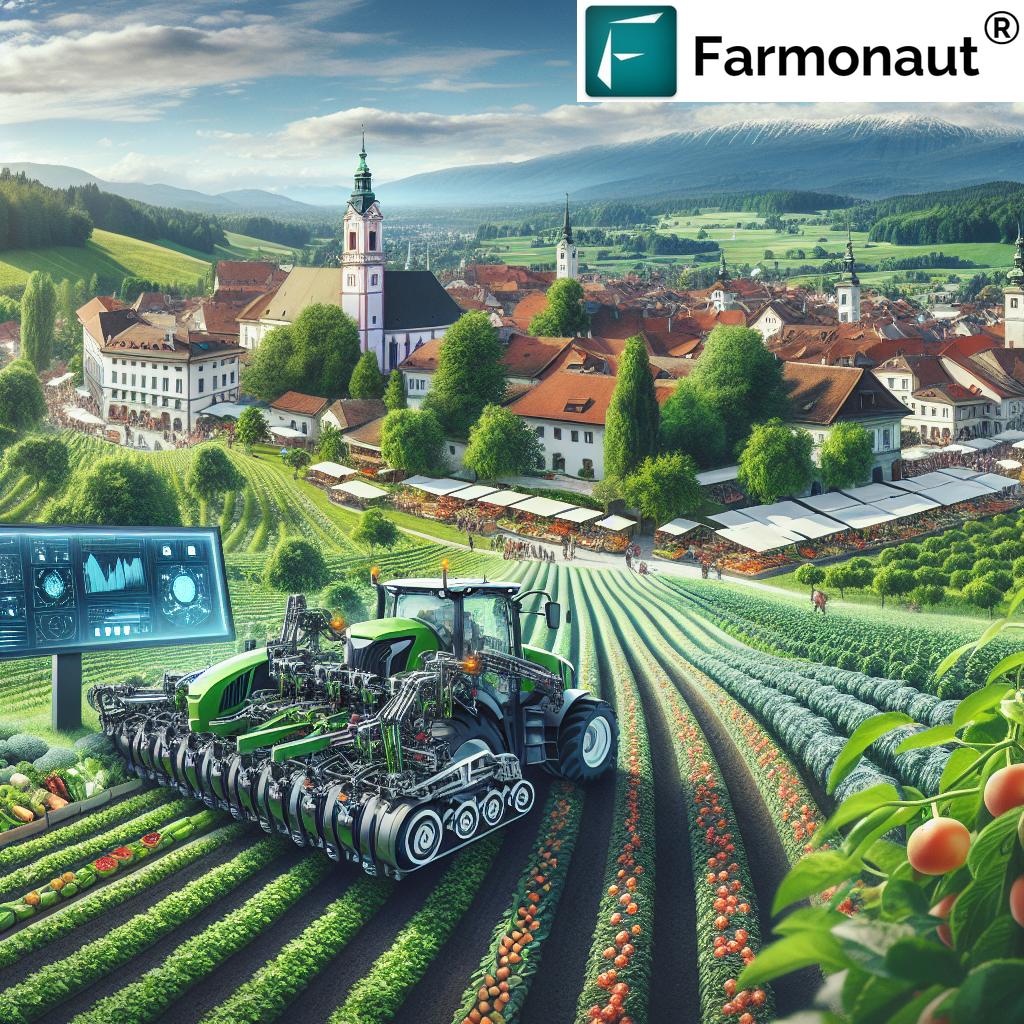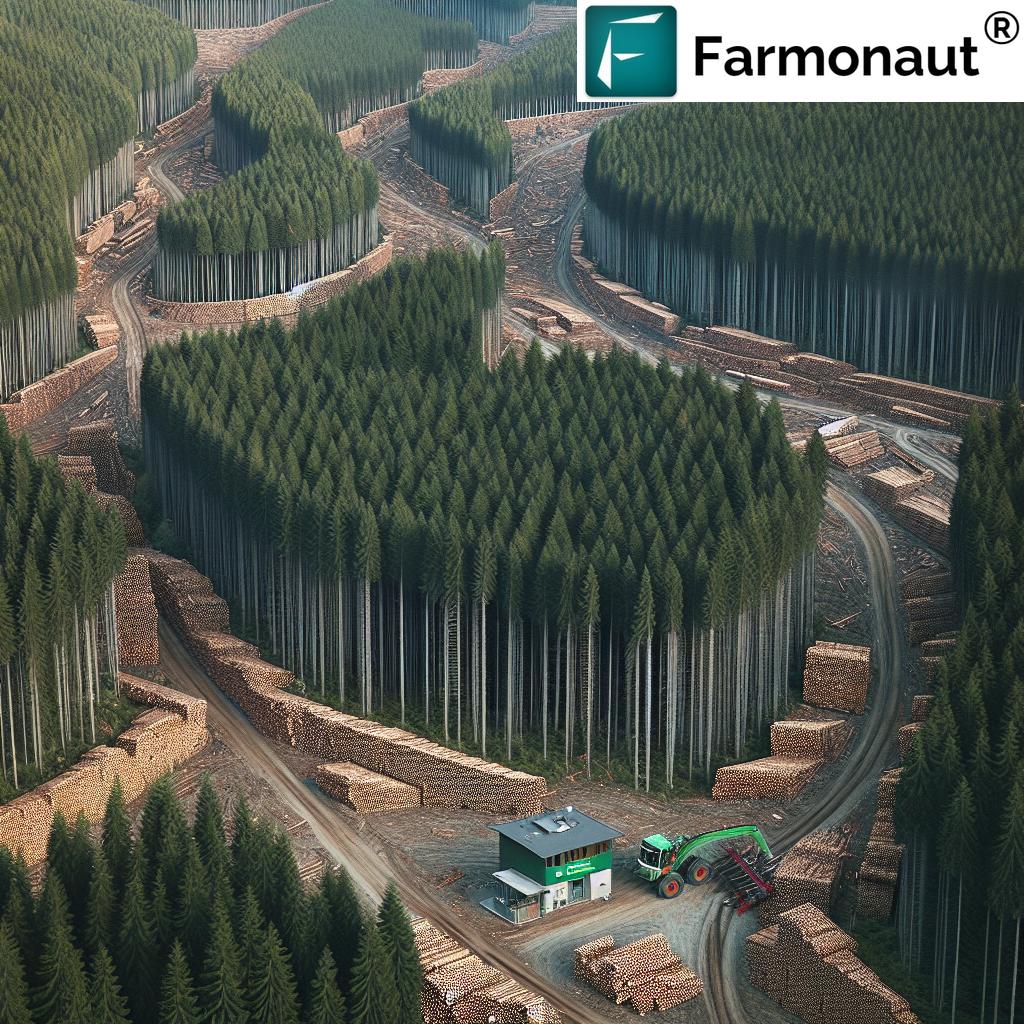Funchal Madeira Tourism: 7 Powerful Ways History Shaped Its Eco Hub
Table of Contents
- Introduction: Funchal – Madeira’s Capital and Eco Tourism Hub
- 1. From Wild Fennel to Thriving City: The Origins of Funchal
- 2. The Sugar Cane Industry Made Funchal a Powerhouse
- 3. The Rise of Madeira Wine: Funchal’s Second Economic Revolution
- 4. Fortifications & Architecture: Securing Funchal’s Strategic Port
- 5. An Aristocratic Retreat: Funchal’s Allure & the Birth of Tourism
- 6. Madeira’s Unique Traditions: Embroidery, Wickerwork & Festivals
- 7. The Modern Eco Hub: Sustainable Funchal Madeira Tourism
- Funchal’s Modern Infrastructure & Resilience
- From Historical Trade to Eco-Modern: Funchal’s Remarkable Transformation Table
- Farmonaut: Empowering Sustainable Agriculture in Eco Hubs
- Top Funchal Tourist Attractions: History & Natural Beauty
- Frequently Asked Questions About Funchal Madeira Tourism
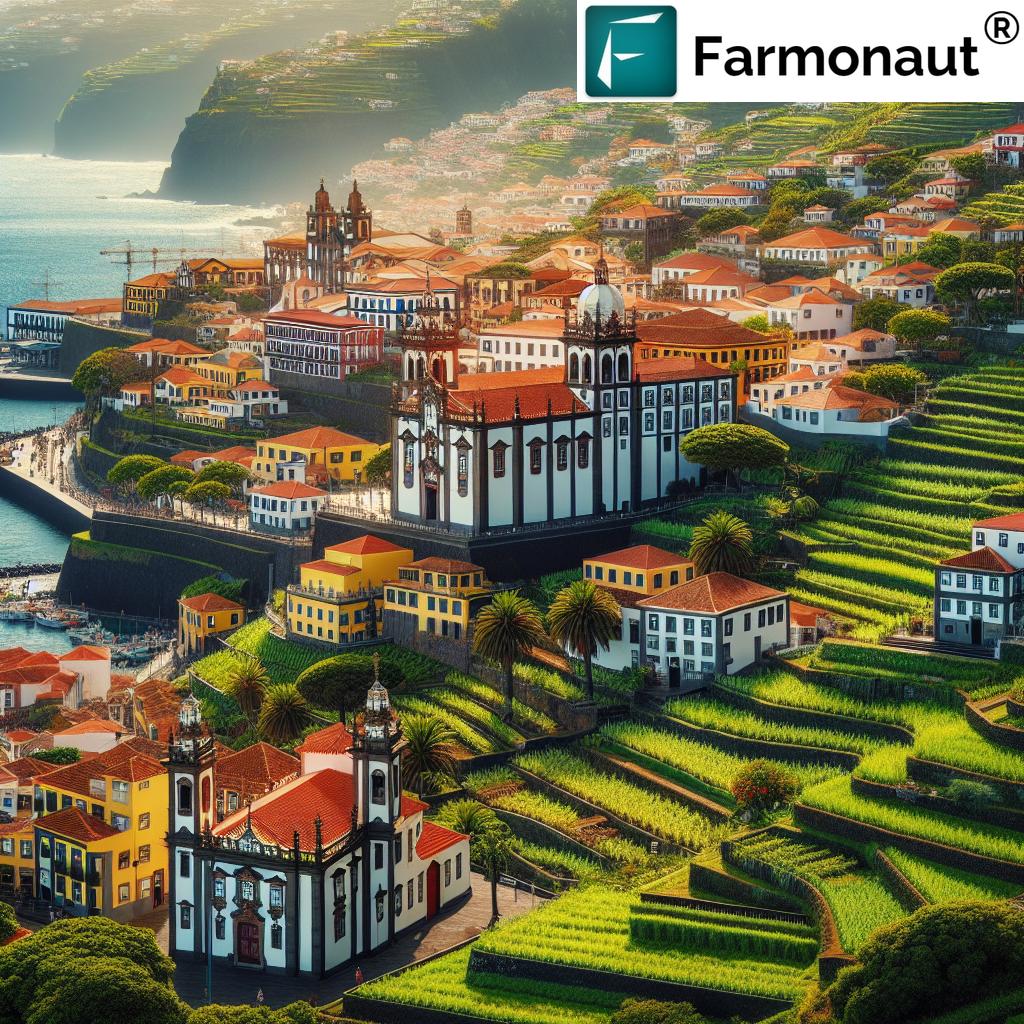
Introduction: Funchal – Madeira’s Capital and Eco Tourism Hub
Welcome to a journey through the rich layers of Funchal Madeira tourism, where centuries of history have shaped Madeira’s charismatic capital into a sustainable hub for adventure, culture, and nature. As the city at the heart of the Portuguese island of Madeira, Funchal is more than just a tourist destination — it’s a story of rediscovery, innovation, prosperity, and resilience.
Let’s explore together how an abundance of wild fennel (“funcho” in Portuguese) gave this city its name and started its journey from uninhabited wilderness to a thriving port and tourist hub. We’ll delve into the pivotal roles of sugar cane and Madeira wine, the legacies of British merchants, and the stunning interplay between local traditions and modern sustainability—showing why Funchal is both a living museum and a model eco-friendly destination.
Whether you’re a tourist or an eco-conscious traveler, history lover, or someone passionate about sustainable development, you’ll find inspiration in the way Funchal’s history, economy, infrastructure, and natural beauty intertwine. Read on to uncover the seven powerful ways history built this eco-hub of the Atlantic.
1. From Wild Fennel to Thriving City: The Origins of Funchal
Our story begins in the early 15th century, when the Portuguese explorers João Gonçalves Zarco and Tristão Vaz Teixeira “rediscovered” the island of Madeira. They found a sheltered bay choked with wild fennel (funcho in Portuguese), which inspired the name Funchal. At this point, the city was nothing more than a strategic location with an abundance of potential awaiting settlement and cultivation.
Within a decade, settlers—mainly from southern Portugal (the Algarve)—began to arrive, drawn by the promise of fertile volcanic soil and a mild climate. Taming the island’s laurel forests was no easy task, but with determination, Funchal’s first inhabitants laid the foundation for an economy that would soon flourish.
- Strategic Importance: Madeira’s location on Atlantic trade routes made it an ideal port for ships crossing between Europe and the New World.
- Natural Beauty: Even before it became a tourist magnet, Funchal was recognized for its breathtaking coastline and lush landscape.
Want to harness real-time weather and satellite insights for your land, vineyard, or farm?



For API access or satellite data integration, visit:
Farmonaut Satellite Data API or check the Developer Docs.
2. The Sugar Cane Industry Made Funchal a Powerhouse
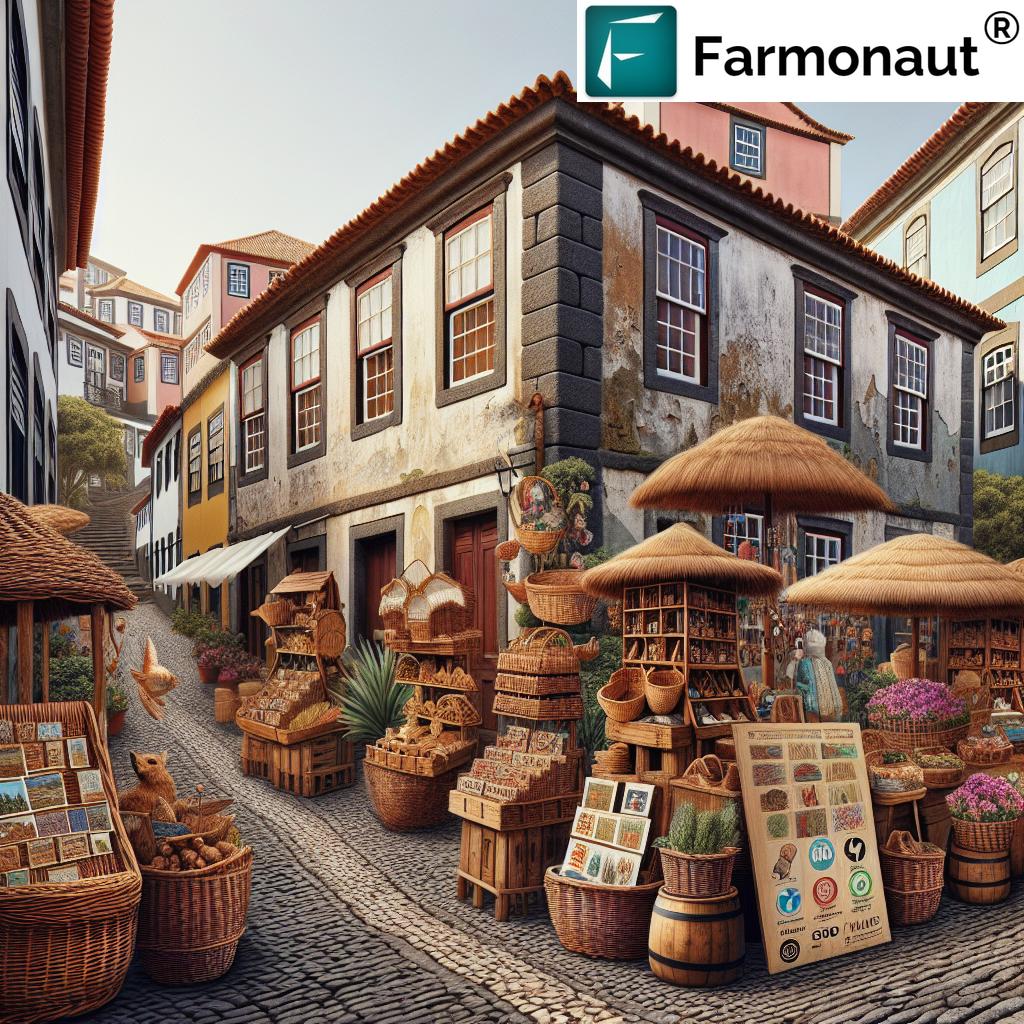
The future of Funchal would be forever altered by the introduction of sugar cane. In the 15th century, this crop found ideal growing conditions in the volcanic soil and humid climate of Madeira. “Engenhos”—primitive but effective sugar mills—dotted the hillsides. The city quickly blossomed as a commercial trading port.
- White Gold: Madeira exported as much as 3,000 tons of refined sugar per year at the sugar boom’s peak, making it one of Europe’s richest islands.
- Funchal Port City: Merchants, ships, and wealth flowed through Funchal as it became a strategic stop in the network of Atlantic trade.
- Infrastructure Growth: The sugar profits fueled the construction of churches, noble residences, and defensive fortifications to guard against piracy.
The Sugar Cane Boom’s Legacy
This period left an indelible mark on both the history of Funchal and the entire island of Madeira. However, it also introduced hard realities: the use of enslaved labor, far-reaching deforestation, and mono-crop agriculture. This is a legacy that still influences the way we approach sustainable tourism and land management today.
Technological Innovation in Agriculture
As we reflect on Funchal’s agricultural past, it’s inspiring to see how modern technology like satellite crop monitoring (such as Farmonaut’s platform) empowers today’s farmers to optimize yields while protecting natural resources—helping avoid the ecological mistakes of the past.
Farmonaut Carbon Footprinting:
Tracking the environmental impact of crops is essential for sustainable development. Farmonaut’s carbon footprinting tools help farmers and agribusinesses monitor and minimize emissions, fostering eco-friendly agriculture—aligned with Funchal’s new green direction.
3. The Rise of Madeira Wine: Funchal’s Second Economic Revolution
Just as the fortunes of sugar began to decline in the late 16th century, resourceful islanders pivoted towards Madeira wine production. The rich volcanic soil and unique climate enabled grapes with a distinctive flavor profile, and it was soon discovered that the wine’s quality actually improved on long sea voyages—thanks to a process known as “estufagem.”
- Global Demand: Madeira wine became prized around the world—nowhere more so than in England and America (Madeira wine even toasted the signing of the US Declaration of Independence).
- British Influence: British traders established powerful wine trading houses in Funchal, many of which still shape the city’s economy and architecture.
- Wineries & Adegas: Funchal became the centre of Madeira wine production, as landscapes filled with vineyards and urban warehouses (“adegas”) still visible in today’s city streets.
The legacy of this era lives on in every bottle exported and in the robust port infrastructure that remains a crucial element of Funchal Madeira tourism. The history of Funchal and its modern economy are still inseparable from the fortified flavors it ships worldwide.
Farmonaut Traceability Solutions for Wineries
Ensuring wine authenticity and provenance is vital in today’s market.
Using Farmonaut’s blockchain-based traceability, vineyards and wineries can guarantee that every bottle’s journey from vineyard to consumer is transparent and verifiable—preserving both heritage and trust.
4. Fortifications & Architecture: Securing Funchal’s Strategic Port
The prosperity driven by sugar and wine made Funchal both wealthy and a tempting target for pirates and corsairs. In response, the city rapidly expanded its defensive infrastructure:
- São Tiago Fort (Forte de São Tiago): This ochre bastion at the old town’s edge still watches over the port—a sentinel of Funchal’s history and trade.
- Palácio de São Lourenço: A combined fortress and palace, now used for ceremonial purposes and military administration.
- Churches and Noble Residences: Many beautiful churches and noble residences were built in this era, funded by commercial wealth. Their timeless facades remain among the most significant Funchal historical sites.
Did you know? Many of these structures today house museums or cultural events, making them essential tourist attractions for anyone interested in the history of Funchal.
Preserving the Old While Embracing the New
Funchal’s cityscape is an elegant blend of the ancient and the eco-modern. Recent urban planning emphasizes restoring and repurposing old buildings—often incorporating eco-friendly features and promoting new functions like art galleries, museums, and green hotels.
Efficient city logistics helps Funchal handle both modern tourism and port operations. Learn how Farmonaut’s fleet management tools support sustainable, efficient transport and delivery—minimizing carbon footprint and optimizing routes, ideal for any commercial hub moving towards greener practices.
5. An Aristocratic Retreat: Funchal’s Allure & the Birth of Tourism
As the 18th and 19th centuries unfolded, Funchal’s unique climate, clean air, and therapeutic landscapes drew Europe’s royalty and aristocrats. The city gained a reputation as an exclusive winter retreat — frequented by the likes of Empress Sisi of Austria and Winston Churchill. Steamships made access easier, and an era of grand hotels and luxury residences began, strengthening Funchal’s status as a capital of wellness tourism.
- Health Tourism: “Climatic cures” became an early selling point (long before wellness spas and organic retreats became mainstream).
- Boating & Port Activity: The port of Funchal became a magnet for pleasure cruises, yachts, and, eventually, luxury liners.
- Cultural Crossroads: This influx diversified Funchal’s economy and cultural life — introducing new ideas, foods, and customs that are still found in the city’s culinary scene and festivals today.
Even now, the city remains a tourist hub, drawing travelers for everything from historic architecture and flourishing gardens to outdoor adventures and culinary experiences.
6. Madeira’s Unique Traditions: Embroidery, Wickerwork & Festivals
Funchal is at the heart of Madeira’s traditional crafts—a crucial part of its cultural and economic history. These crafts are inextricably linked to the export and tourism booms of earlier centuries.
- Embroidery: Hand-stitched linens, tablecloths, and lace, meticulously crafted and sold as premium souvenirs to tourists worldwide.
- Wickerwork: Funchal’s famous “Monte sledges” and baskets, created using local willow—an eco-friendly artisan tradition.
- Festivals: Standout events like the Flower Festival and Wine Festival vividly celebrate local traditions, horticultural abundance, and the interplay of nature and culture.
Participating in these events allows visitors to experience the living legacy of Funchal’s history—and support sustainable community business at the same time.
Protected Landscapes and Botanical Gardens
Many traditional cultivation and craft practices have fostered the preservation of native landscapes, including Funchal’s famous botanical gardens—a testament to both the island’s natural beauty and its sustainable stewardship.
Large-Scale Advisory for Plantation/Farm Management
Farmonaut’s large-scale farm management app empowers plantation owners, cooperatives, and authorities to monitor, plan, and optimize even expansive landholdings—using advanced analytics for water, soil, and crop health. This keeps agriculture both productive and in harmony with the environment.
7. The Modern Eco Hub: Sustainable Funchal Madeira Tourism
Funchal is now internationally recognized for its efforts to preserve natural beauty, protect culture, and promote eco-conscious vacations. With 60% of tourism businesses now eco-certified, this city exemplifies what modern sustainable tourism can achieve.
- Partnership with Nature: Activities like mountain hiking, whale watching, eco-safaris, and botanic tours are all designed to minimize environmental impact while showcasing Funchal’s natural beauty.
- Green Hotels & Infrastructure: Many hotels utilize renewable energy, efficient waste recycling, and sustainable materials in construction and operation.
- Clean Mobility: A growing network of electric buses, pedestrian paths, and cycleways helps the city balance growth with low carbon emissions.
This is a city where the legacies of sugar and wine now power a green tourist economy—and where the lessons of history serve to inform smarter, more sustainable growth.
Funchal’s Modern Infrastructure & Resilience
Facing natural hazards—from floods to landslides—Funchal has continued to upgrade infrastructure to better protect people, support tourism, and safeguard trade. Recent investments prioritize ecological engineering, improved drainage and storm defenses, disaster preparedness, and the integration of green spaces and sustainable city planning.
- Eco-Urban Planning: Restorations of historic neighborhoods now include energy-efficient retrofitting and natural hazard mitigation.
- Smart Waste Management: Efforts to reduce, reuse, and recycle ensure the island remains clean for both residents and tourists.
- Secure & Efficient Port: As a crucial hub for cruise ships, cargo, and local ferries, the port remains one of the most dynamic economic engines—and a window onto the island’s history for millions of visitors.
Farmonaut’s Role in Sustainable, Resilient Agriculture
With climate change posing increasing risks, real-time monitoring and data-driven advisory are crucial for resilient agriculture.
Farmonaut’s crop loan and insurance verification tools help farmers and agribusinesses access financial protection, reduce risk, and support continued sustainability in changing environments.
From Historical Trade to Eco-Modern: Funchal’s Remarkable Transformation Table
| Era | Main Activity / Industry | Impact on Environment | Key Sustainability Practices |
|---|---|---|---|
| 15th Century: Sugar Boom | Sugar Cane Trade & Export | High deforestation; mono-cropping; estimated 40% forest cleared | Traditional farming; little awareness of sustainability |
| 16th–19th Century: Wine Era | Madeira Wine Production, Port Expansion | Vineyard expansion; improved soil management; urban growth | Crop rotation, beginnings of cultural landscape preservation |
| 19th–20th Century: Tourism Growth | Health, Wellness & Elite Tourism | Urbanization; new hotels; coastal land use pressure | Botanic gardens and park establishment; eco-health resorts |
| 21st Century: Eco-Modern Hub | Sustainable Tourism, Greentech, Cultural Heritage | 30% of coastline protected (2024); strong recycling; renewable energy growth | Eco-certificates; green tours; disaster-resilient infrastructure; smart mobility |
Farmonaut: Empowering Sustainable Agriculture in Eco Hubs
The evolution of Funchal Madeira tourism from extractive industries to eco-friendly prosperity mirrors a broader global need for digitally enabled sustainability in farming. Farmonaut stands at the forefront of this movement, providing a planetary-scale toolbox that helps producers and communities:
- Monitor crop health via satellite to optimize resources and avoid unnecessary environmental impact.
- Apply carbon footprint tracking for greener operations and regulatory compliance.
- Empower large-scale and smallholder farms with precision insights and sustainability-focused data—from Farmonaut’s iOS, Android, or web app.
- Promote full traceability in the agri-food supply chain, preserving quality and protecting authenticity—from vineyard to bottle or farm to table.
- Support climate resilience by helping governments and organizations estimate area, yield, or risk, using advanced remote sensing on-demand.
By embracing these solutions, farms and producers in regions like Madeira can continue thriving—preserving their unique environment, supporting local economy, and contributing to the island’s green reputation.
Top Funchal Tourist Attractions: History & Natural Beauty
- Old Town (Zona Velha): Wander cobbled streets lined with art, bistros, and vibrant murals.
- São Tiago Fort & Palácio de São Lourenço: Iconic symbols of Funchal’s strategic importance and defense.
- Blandy’s Wine Lodge: A must for Madeira wine aficionados to sample historic vintages and learn about wine production processes.
- Botanical Gardens: Over 2,000 exotic plants, terraced on hillsides and offering panoramic city views.
- Mercado dos Lavradores (Farmers’ Market): Savour local produce, vibrant flowers, and a taste of everyday Madeiran life.
- Monte Palace and Cable Car: Soaring above the city to lush gardens and panoramic Atlantic vistas.
- Levada Walks: Hike historic irrigation channels through laurel forests, a UNESCO Natural Heritage asset.
Enjoying the Best of Funchal’s Climate
Funchal climate and weather are famously mild and sunny. Winters are gentle, while springtime brings a profusion of flowers, making it one of Europe’s top year-round destinations for outdoor activities and eco-tourism.
Frequently Asked Questions About Funchal Madeira Tourism
What makes Funchal a unique tourist destination?
Funchal blends centuries of history, stunning natural beauty, and vibrant culture—ranging from the legacy of sugar and wine to unique crafts, lush botanical gardens, and world-class festivals. Its modern commitment to eco-friendly tourism sets it apart as a sustainable travel hub in the Atlantic.
How did sugar cane shape Funchal’s early economy?
The sugar cane boom transformed Funchal into a rich port city in the 15th century, driving infrastructure growth and attracting traders from all over Europe. Though it ultimately declined, it established the city’s prominence in Atlantic trade routes.
Why is Madeira wine famous globally?
Thanks to ideal volcanic soil and climate, and a process that improves wine flavor during long sea voyages, Madeira wine became an iconic global export. British merchants established powerful trading houses that helped create today’s vibrant Funchal wine industry.
What eco-friendly attractions and practices are available in Funchal today?
Eco-tours, levada walks, whale watching, electric bus networks, and green hotels are all widely available. Funchal is a leader in sustainability, with more than 60% of tourism businesses eco-certified. Urban planning increasingly prioritizes resilience, recycling, and green space preservation.
What is the best time of year to visit Funchal?
Anytime! Funchal’s climate and weather are pleasant all year, but spring (April–May) and fall (September–October) offer ideal temperatures, lush scenery, and vibrant festivals, like the Flower Festival.
How does Farmonaut contribute to sustainable agriculture?
Farmonaut provides satellite-based crop monitoring, advisory, traceability, carbon footprinting, and fleet management tools. These technologies support sustainable, high-productivity farming and help reduce agriculture’s environmental impact—empowering greener practices for communities everywhere.
Summary: Funchal – A Journey Through the Flavors and Fortunes of Madeira’s Capital
Funchal stands as an exemplary eco-friendly tourism hub shaped by centuries of transformation. As Madeira’s capital city, it has evolved from sugar cane trade center to wine production powerhouse — always adapting to the tides of history, culture, and commerce. Today, its economic, cultural, and natural riches are preserved through advanced infrastructure and strong sustainability commitments, making Funchal a must-see destination for every modern traveler. Thanks to new technologies like those offered by Farmonaut, the legacy of resourcefulness and adaptation continues, ensuring Funchal’s future is as bright as its past.


